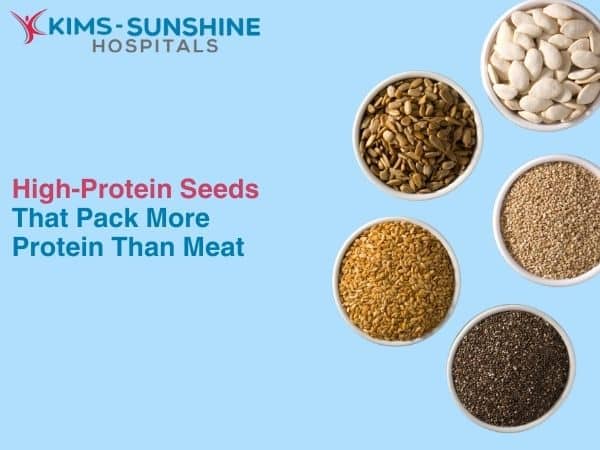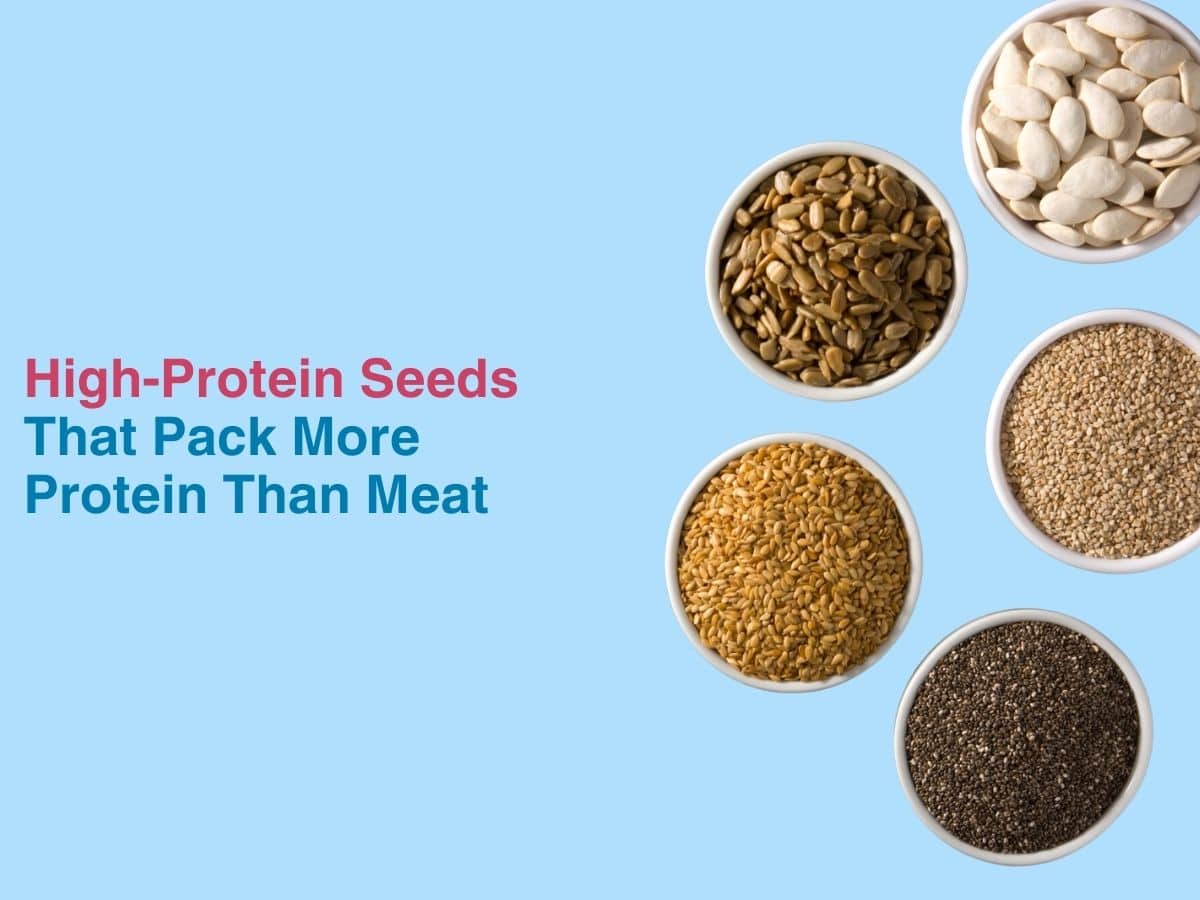
High-Protein Seeds that Pack More Protein than Meat

Plants have long been thought of as food sources but not ones with protein in them. People tend to revert to meat for that and think plants supply vitamins, minerals and fibre. Yes, they do that obviously, but they are also powerhouses of proteins and hence are complete foods. Let us look at some seeds only and not at nuts, though they have been called ‘seeds’ too in general.
Plant-Based Diets: Seeds with More Protein than Meat-
Seeds are super important for plants as they help them reproduce effectively. Seeds may look tiny but they are powerhouses of energy and nutrients, including proteins. Protein is needed in sufficient quantities to ensure our muscles, skin and bones function properly. You are supposed to eat 20-25 grams of protein per day, though the amounts can be lower if you don’t lead a very active life. The values are slightly lower for women when compared to men, but pregnant and breastfeeding women need more than usual. Let us look at 5 best protein-rich seeds as meat alternatives below-
- Hemp Seeds – These tiny seeds are de-shelled and the hull can be eaten. They are very good sources of all 9 essential amino acids. 30 grams can give you about 9.5 grams of protein. They also have fibre, minerals like iron, calcium, zinc, potassium and magnesium, along with Vitamin E. When you roast them, you improve their taste and help increase bioavailability of the nutrients.
- Pumpkin Seeds – The protein content in pumpkin seeds is pretty high- almost 19 grams. So, one tablespoon should give you about 2 grams. They are rich sources of high quality fats like omega-3, 6 and 9 fatty acids, antioxidants and minerals- potassium, magnesium, zinc, iron and copper.
- Sunflower Seeds – These black seeds are rich in protein- almost 21 grams in 100 grams. The catch however is they are NOT weight loss friendly as they are high in calories. So, you will really need to exercise portion control when you snack on them. They have high levels of Vitamin E (antioxidants), minerals like selenium, copper, magnesium and manganese, along with choline, phenolic acids, betaine and lignan respectively.
- Flax seeds – These seeds are well known as sources of dietary fibre, but they also have lots of oil in them- unsaturated fatty acids mainly, which are good for your heart. They are also rich in minerals like zinc, calcium, magnesium, zeaxanthin, folate and lutein respectively. They do have some protein in them – about grams for every two tablespoons.
- Sesame seeds – These tiny black or white seeds are highly prized for their nutty flavour and are used to produce sesame oil commercially. They are the best sources of calcium available, along with iron, fibre and are rich in antioxidants. Their protein content is also pretty high- 1.6 grams for every tablespoon.
High-Protein Seed Recipes Replacing Meat in Meals-
All of these seeds can be toasted without any fat and can be sprinkled on salads and used as toppings. Sesame seeds in particular are eaten as chikkis, with jaggery in them. You can make dry fruit ladoos that have these seeds in them. Pumpkin seeds are regularly used to thicken curries, as they give a creamy and smooth texture. Most of them are pretty neutral in taste, so they won’t impart any specific flavour per se. These days, you get them as fine flours, which can then be added into roti flour, to make dough. Their high fibre content means they are gut friendly in nature.
Conclusion
Plant sources in general have always been thought of as protein deficient, but if you look closely at a few seeds like the ones we have mentioned above, you will understand that they are good sources of protein. Animal sources are of course well known to be rich in protein, but how they are prepared matters. With plant sources, we do not over-process them normally, but that danger is almost ever present with meat. You can also talk to your doctor for help, when it comes to redesigning your diet, with these specificities in mind.
Frequently Asked Questions
Are high-protein seeds a good alternative to meat?
What are the best high-protein seeds for vegetarians and vegans?
What are the health benefits of eating high-protein seeds over meat?
Are high-protein seeds suitable for muscle building?
Do high-protein seeds provide the same amino acids as meat?

Ms. Bhavana K.
M.Sc (Nutrition & Dietetics)
HOD – Chief Dietician






